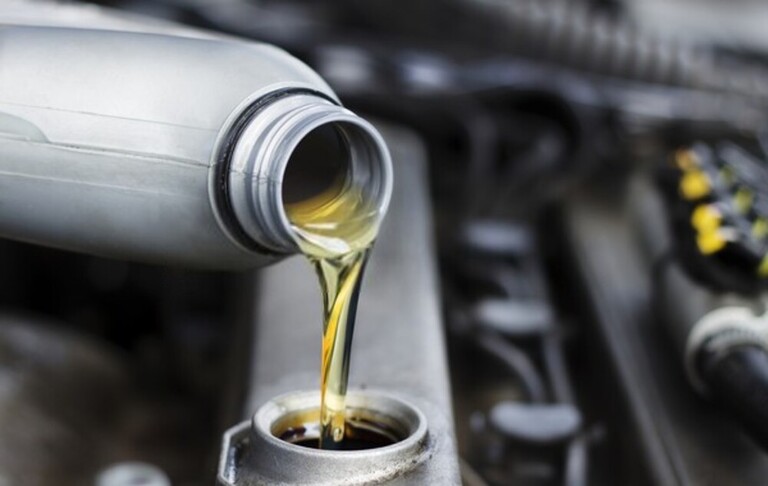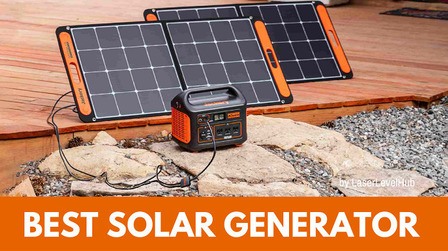Portable generators are a great alternative to standard backup generators. These compact units of goodness offer all the power you can get from a standard generator while still providing the convenience of portability and better yet, low cost of acquisition and maintenance.
Even so, portable generators can be quite nasty sometimes. Like any other machine out there, they are prone to faults and breakdowns when you need them most, like in the middle of a power outage. There is nothing more frustrating than having your generator malfunctioning after bad weather has knocked out grid power and you desperately need to keep power running.
Of course, whenever your generator develops a problem, your first line of action would be to check if there is enough fuel in the fuel tank.

However, there are several common problems you are likely to encounter when using portable generators. And at times, the problem is very minor, and fixing it does not require any special skills or tools. You only need to identify the fault and apply the correct plan of action to correct it. You need not spend on a generator mechanic to get back up and running smoothly.
Ahead you will find some of the common problems you are like to encounter and quick DIY fixes to help correct them. Shall we take a look?
Top 8 Portable Generator Problems and How to Fix Them
1 - Running For a Short While Then Stopping
You understand the frustration, don't you? When the machine starts to run for a couple of seconds then suddenly stops despite having sufficient fuel. Consequently, your activities are disrupted with the possibility of damage to your electrical appliances. Ahead you will find the possible causes of this malfunctioning, and the appropriate line of action to remedy the faults.
Overloading
The excessive load will mean that the power demand is higher than your generator's capacity and the generator is overworking. When a portable generator is overloaded, it produces a heavy crackling sound. Newer models are fitted with sensors that detect when the machine is overloaded and prompts it to go off to avoid any significant damage. Older models that lack this tech will under power the continue stressing the generator.
Remedy - The solution is reducing the appliances connected to the generator before restarting the machine. Keep a keen ear on the sound and look out for any unusual or heavier than usual sound; an indication of an overworking generator.
Oil Level
Your generator may be shutting down after a few seconds of function due to very high or very low oil levels. When the oil level is too low, the temperature in the generator rises pretty fast leading to a shutdown of the system. Most modern models are installed with a low oil level auto shut-down feature that turns your generator off as soon as a low oil level is detected.
On the other hand, very high oil levels may result in blowing the oil out of the breather line into the air filter. This may also cause a shutdown of the system. Portable generators with very high oil level sensors will also go off if the oil is beyond the recommended levels.
Remedy - Always check the level of oil in your generator before turning it on. Ensure the level is optimal and within the recommended amount.
Coolant Level
The level of the coolant in the generator is every bit as important as the oil level. Low coolant levels contribute to the quick rise in temperatures, which may damage sensitive parts such as the control panel and trigger a shutdown of the entire system. Present-day portable generators are equipped with coolant level switches and thermal overload cutout which stops the system when the temperatures become abnormally high.
Remedy - Make sure that the generator is always filled with the coolant before putting it on the machine. Check the coolant level on a timely basis, at least once a month.
Fuel tank or Fuel Pipes
The fuel tank and the pipes carrying fuel to the engine and carburetor should be clean and clear of any deposits that may hinder the free flow of the fuel. Carefully check the pipes, pump, and valves and ensure nothing restricts free fuel supply. More than that, clean the fuel tank and release any pressure that may be locked inside.
Circuits and Wiring
Most generators rely on a battery to supply the power that turns on the system. Portable generator battery will only last for a few years. Ensure the battery is in prime shape. Not just that, other parts which are prone to damage include spark plugs, control panel, switches, and voltage meters. Make sure you service these parts regularly and replace them in case of irreparable faults.
If you notice any odors from the generator, check for short circuits or wires going bad.
2 - Leakages
Fuel, oil, and coolant leakages are common with generators. Fuel leaks are often due to an increase in temperature, wet stacking, overfilling of the base tank due to a defective fuel pump, or inappropriate handling by the user. Meanwhile, coolant leakages can be a result of worn-out block heater hoses. The hoses are prone to wear thanks to the high temperatures from the block heater. Other causes of leakages include gasket failures and a malfunctioning fuel gauge.
How to Fix - Perform routine maintenance checks, regularly inspect the hoses portable generator and try to trace any leaks. Should you come across any, you can simply fix the leak with epoxy. Just be sure to allow 24 hours to dry properly. Replace the rogue hoses, gasket, or fuel gauge if any.
3 - No Voltage or Power

Generators need some voltage to start. However, a generator may fail to produce the voltage due to a loss in residual magnetism. When a generator loses the residual magnetism, it is unable to build up the power it requires to start itself. This fault is created when your generator stays unused for a long period. Besides that, connecting your portable machine to a load when it is off could also lead to residual magnetism. Another cause is running the generator without a load for a long duration.
How to Fix - The solution is to connect a 12v battery to the white and black lead of the generator. Connect the white pole to the positive wire from the battery. Use the negative clip to touch the black lead for a few seconds before removing it. You can repeat this process severally until there is a buildup of sufficient voltage. Before you begin ensure you switch the generator off first.
Alternatively, you can use an electric drill. Plug the grill into the receptacle of the generator. Turn on the generator and press the trigger of the drill to spin in the opposite direction. This will create a field that will ignite the generator.
4 - Wet Stacking
Wet stacking is the accumulation of oil, unburned fuel, and condensed water in the exhaust system. When this build-up fills to overflowing, you will notice an oil-like fluid leaking from the exhaust. One of the causes of wet stacking is running your portable generator for a long duration with a light load plugged in.
Consequently, the engine won’t heat up to the temperatures needed to completely burn the fuel. So, there will be a buildup of wet fuel in the engine stack. Apart from that, if the temperature isn’t high enough, the expansion joints in the exhaust system will not seal up properly. The fuel that results from these two processes will leak then through the exhaust. Machines that overconsume oil could also be experiencing wet stacking.
How to Fix - The solution is to ensure the load consumes at least ¾ of the total power capacity of the generator. This way, the generator can reach the requisite temperature for complete combustion of fuel.
5 - Increased Consumption of Fuel
You may notice the generator burning more fuel than it usually used to consume earlier. One indication of a generator that is burning excess fuel is the production of black sooty smoke from the exhaust. Many a time, worn-out injector tips are the cause. As the name indicates, injector tips are the part that injects the fuel into the combustion cylinder.
Overloading can also result in increased consumption of fuel. When you overload the portable generator, a considerable amount of fuel burns into black smoke without increasing the power production.
More than that, worn-out parts such as bearings increase friction, while dirty ash carbon deposits increase the load on the generator and lead to higher fuel consumption. Similarly, incomplete combustion of the fuel due to insufficient heat also increases the load on the engine and results in higher fuel consumption.
How to Fix – Check the condition of the injector tips, and moving parts. If they are worn out, replace them. Furthermore, be keen not to overload your generator.
6 - Overheating

Some portable generators will heat up after function for extended time-frames. Overheating can be a signal of low coolant levels or lubricant levels. Also, worn-out parts such as bearings and other moving parts will bring about a rise in friction and lead to an escalation of temperatures.
In addition, when the dust and smoke block the air duct and prevent the passage of air, it is difficult for the generator to dissipate heat. The heat will build up inside and lead to outrageous temperatures
How to Fix - Routinely check the level of the coolant and lubricants. Refill the coolant if the level is too low and add lubricant if there is a need. Secondly, check the moving part and carry out routine maintenance and lubrication to keep them in superb condition. Moreover, check for blockages in the air filter and clean or replace them from time to time.
7 - Increased Noise Level
Is your generator louder than usual?
Well, it could be a cry from the machine for lubrication or a sign of wear and need for repair. Moving parts such as the cooling rotors, pistons, and bearings give out an irritating sound if they are not lubricated properly.
Louder than normal noise could also be a hint of an overworking generator.
How to Fix
One solution is to ensure the moving part are properly lubricated. Check that the load is not consuming more than the capacity of the portable generator. If so, reduce the load.
Suppose your generator is naturally noisy, consider purchasing and installing a generator muffler to reduce the intensity of the sound. Additionally, ensure the generator is sitting on a soft surface and turn the exhaust to face away from you.
8 - Fuel Level Alerts
Modern portable generators are equipped with alarms that go off whenever the fuel level is too high or too low. However, the alarm may be activated more frequently or unnecessarily and give you a false warning.
Fret not. The cause may be the increase in temperatures which lends to heating and expansion of the fuel. The fuel level will then rise and trigger the alarm.
Conclusion
The complications and quick fixes we’ve highlighted in this post are only workable when you have encountered a minor fault and have no time to visit a mechanic. The guaranteed way of avoiding these issues is to do regular maintenance on your generator and keep it in prime shape. And did we mention that if the portable generator is still under warranty, you should be careful not to alter anything that may void the warranty?
If the problem persists after trying out the quick fixes, do not think twice about getting professional help from a certified generator mechanic.









